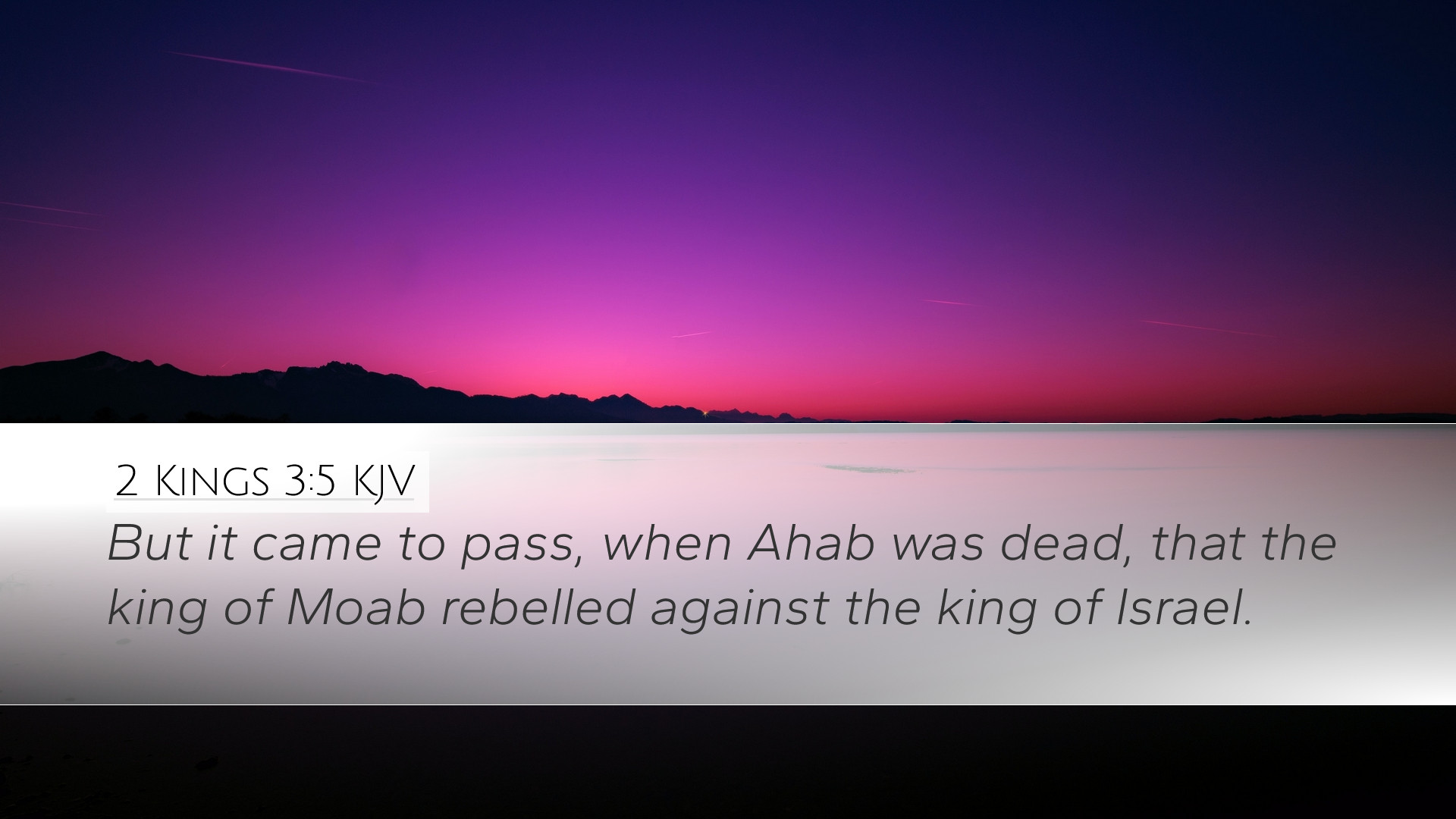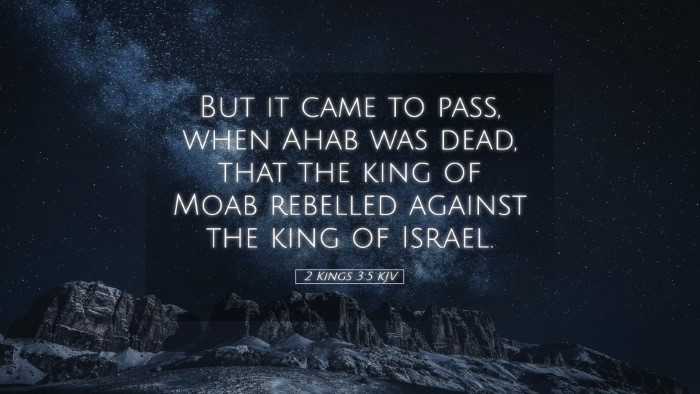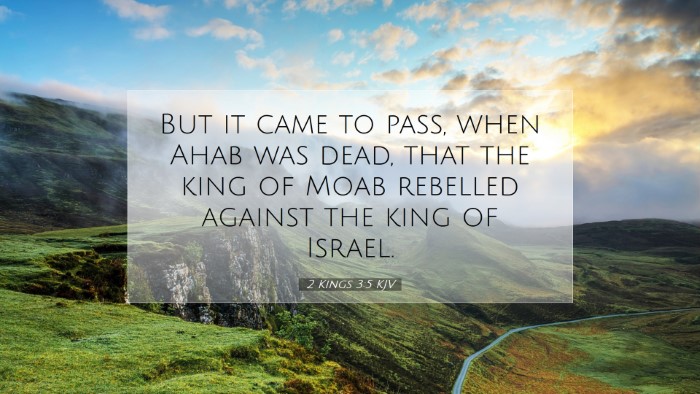Commentary on 2 Kings 3:5
Bible Verse: "But when Ahab was dead, the king of Moab rebelled against the king of Israel."
This pivotal verse in 2 Kings introduces the rebellion of Moab against Israel following the death of Ahab, a significant event that carries both historical and theological implications. In this commentary, we draw insights from notable public domain commentaries, such as those by Matthew Henry, Albert Barnes, and Adam Clarke, to elucidate the verse.
Historical Context
The history of Israel is dotted with alliances and enmities, particularly concerning the neighboring nations such as Moab. Ahab, the king of Israel, was known for his controversial reign, characterized by idol worship and conflicts with prophets of Yahweh. His death marks a significant power vacuum and a turning point in the regional dynamics, particularly concerning Moab.
Insights from Commentaries
Matthew Henry's Commentary
Matthew Henry highlights that the rebellion of Moab was a direct consequence of Ahab's death. Ahab had maintained a tight grip over Moab, partly through military force and partly through political alliances. His demise emboldened the Moabite king to reclaim independence, illustrating the fragility of human leadership and the transient nature of power.
Albert Barnes' Notes on the Bible
Barnes provides a deeper exploration into the character of the Moabite king and the reasons behind this rebellion. He notes that Moab had been subjected to tributes under Ahab's reign, and with his death, the Moabites saw an opportunity to break free from the oppressive control of Israel. This rebellion is indicative of the broader theme of national identity and autonomy, reflecting the desire of nations to govern themselves free from foreign dominance.
Adam Clarke's Commentary
Adam Clarke elaborates on the sociopolitical repercussions of this event. He suggests that the rebellion was not an isolated incident but rather a symptom of the discontent brewing in the region. Clarke posits that under Ahab's rule, the heavy taxation and military demands created animosity among neighboring nations, particularly Moab. The death of a strong leader often leads to upheaval, and Clarke emphasizes the chaos that ensues in the absence of strong, unifying leadership.
Theological Implications
This verse also carries significant theological weight. The rebellion of Moab against Israel can be viewed as a manifestation of God's sovereignty over nations. The events that transpire reveal God’s control of history, even through seemingly chaotic events like rebellions. Each act of defiance against God's chosen leader serves as a reminder of the ultimate authority that belongs to the Lord. The sovereignty of God is fundamental in understanding His redemptive plans even in moments of political upheaval.
Lessons for Leaders and Theologians
- The Transience of Power: Leaders must recognize that their authority is temporary and can easily be challenged.
- The Importance of Righteous Leadership: Ahab's reign serves as a cautionary tale of the effects of idolatry and disobedience to God, leading to national strife.
- Understanding God's Sovereignty: Even in the face of rebellion and turmoil, God’s ultimate control is evident.
- Rebellion and Autonomy: The desire for autonomy often leads to conflict, urging leaders to seek peace and understanding with neighboring nations.
Conclusion
2 Kings 3:5 encapsulates the relational dynamics between Israel and Moab, revealing much about leadership, rebellion, and God's overarching plan for nations. A careful study of this verse encourages pastors, students, theologians, and scholars to dive deeper into the implications of political changes and the sovereign hand of God in historical events. As they ponder this verse, they are reminded to seek a leadership style that reflects God's justice and mercy, a style that fosters peace rather than provokes rebellion.


